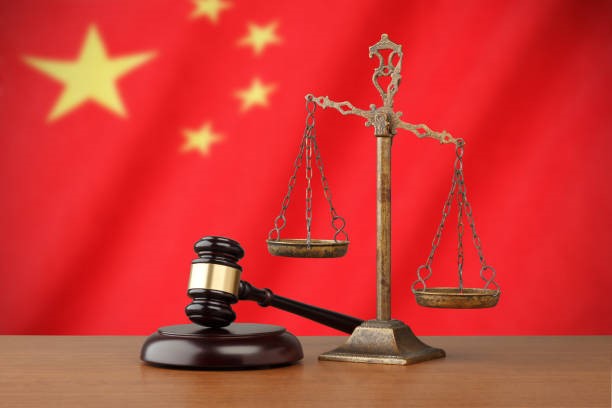 The National People’s Congress Standing Committee adopted the legislation on April 28 following its third reading during its bi-month-to-month session, based on the state media agency Xinhua. At the time of writing, the text of the legislation had not been made public, however the restricted state media reporting on the third draft, which appeared prior to the vote, seemingly confirms that the federal government has not relented on the most troubling features within the broadly circulated second draft. It is not clear if the law retains the supply requiring overseas NGOs from reporting employee information to public security bureaus. That draft (Chinese // unofficial English translation) alarmed the worldwide group, and sparked important considerations resulting from its give attention to national security and its overly broad scope. It is not recognized if churches and sports activities clubs, that are usually registered overseas as non-revenue and non-governmental organizations, fall under the scope of the legislation. As such, based on Xinhua, the law now reportedly covers “not-for-revenue, non-governmental social organizations comparable to foundations, social teams, and think tanks.” However, it’s unclear if the reported list of groups governed by this legislation is exhaustive, or may as an alternative leave room for authorities’ discretion to make exceptions.
The National People’s Congress Standing Committee adopted the legislation on April 28 following its third reading during its bi-month-to-month session, based on the state media agency Xinhua. At the time of writing, the text of the legislation had not been made public, however the restricted state media reporting on the third draft, which appeared prior to the vote, seemingly confirms that the federal government has not relented on the most troubling features within the broadly circulated second draft. It is not clear if the law retains the supply requiring overseas NGOs from reporting employee information to public security bureaus. That draft (Chinese // unofficial English translation) alarmed the worldwide group, and sparked important considerations resulting from its give attention to national security and its overly broad scope. It is not recognized if churches and sports activities clubs, that are usually registered overseas as non-revenue and non-governmental organizations, fall under the scope of the legislation. As such, based on Xinhua, the law now reportedly covers “not-for-revenue, non-governmental social organizations comparable to foundations, social teams, and think tanks.” However, it’s unclear if the reported list of groups governed by this legislation is exhaustive, or may as an alternative leave room for authorities’ discretion to make exceptions.
 Just something interesting to think about. Police can put international NGOs on a “blacklist” if police allege that they engage in conduct that “endangers nationwide safety.” Under the new law, the State Council and organs of public security reportedly have the authority to create an inventory of “unwelcomed” overseas groups that interact in actions deemed unlawful, such as “subversion of state power” or “separatism.” This stipulation permits police to create a de facto “blacklist” of international NGOs that can not be allowed to establish consultant places of work or conduct short-term activities inside China. The earlier draft only required that local accountants conduct audits of submitted monetary studies. The brand new regulation removes a provision in the earlier draft that heavily regulated overseas NGOs’ hiring of employees or recruiting volunteers in China. Police have long wielded the ability to question representatives or staff of Chinese NGOs-with or without legal summons-typically as a option to issue warnings or just to intimidate. Police retain the power to suspend, cancel, or redcirclelawfirms.com revoke the registration of NGOs that interact in unlawful actions at any time.
Just something interesting to think about. Police can put international NGOs on a “blacklist” if police allege that they engage in conduct that “endangers nationwide safety.” Under the new law, the State Council and organs of public security reportedly have the authority to create an inventory of “unwelcomed” overseas groups that interact in actions deemed unlawful, such as “subversion of state power” or “separatism.” This stipulation permits police to create a de facto “blacklist” of international NGOs that can not be allowed to establish consultant places of work or conduct short-term activities inside China. The earlier draft only required that local accountants conduct audits of submitted monetary studies. The brand new regulation removes a provision in the earlier draft that heavily regulated overseas NGOs’ hiring of employees or recruiting volunteers in China. Police have long wielded the ability to question representatives or staff of Chinese NGOs-with or without legal summons-typically as a option to issue warnings or just to intimidate. Police retain the power to suspend, cancel, or redcirclelawfirms.com revoke the registration of NGOs that interact in unlawful actions at any time.
Giving police much more oversight, the new legislation retains the stipulation in the earlier draft allowing them the facility to collect all supplies pertaining to actions that overseas organizations carry out within the country. Another change to the second draft, which has the chilling impact of intimidation, is the stipulation that overseas NGOs working in China must make full public disclosure of their funding sources and bills. As such, the laws will deliver a heavy blow to mainland NGOs, which rely heavily on overseas NGOs’ financial support because of insurmountable obstacles to securing funding inside China. The lack of a definition will contribute to arbitrary determination-making by police. Network of Chinese Human Rights Defenders – April 28, 2016) – CHRD denounces the Chinese government’s adoption of a draconian legislation on overseas NGOs that can have a profoundly detrimental impact on civil society in China. The desk under summarizes some concessions that Xinhua reported were made in the third draft that was handed into law on April 28, 2016 (see more details after table).
While the third draft seems to grant a few concessions which are mentioned to “facilitate” services and “simplify” procedures for overseas NGOs, such modifications are largely minor, and additionally they lack specific parameters, which was a significant problem with the previous draft. The adopted version seems to retain probably the most troubling parts of the earlier draft, and permits for even tighter authorities management over NGO actions. That is a transparent indication the federal government views such teams as a menace to national safety. The law doesn’t clearly define the activities that “endanger nationwide security” and other laws, such because the National Security Law (2015) and the Criminal Law (1979, amended 2015) additionally fail to provide an adequate definition. As an illustration, police have used crimes of “endangering nationwide security” to arrest and hold incommunicado human rights legal professionals and civil society activists seized within the “709” crackdown final summer time. Note that children of nationals who were born abroad are eligible for Taiwan passports and due to this fact thought of to be nationals, but often they don’t hold a family registration so are referred to as “unregistered nationals” in statute.
